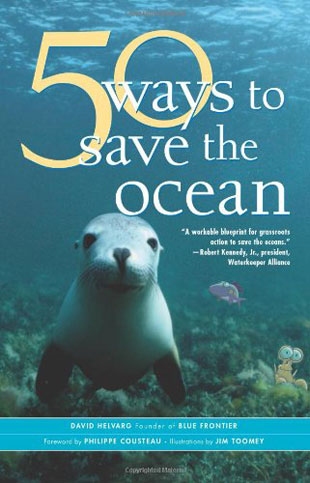"The United States is and always has been an oceanic society. From the Bering Sea land bridge to the Jamestown Settlement to the processing lines at Ellis Island, we have been a tempest-tossed people, a saltwater people, a coastal people. We have lived well on the abundance of the seas and coastlines from the earliest canoe tribes setting fish traps along the Jersey shore to today's giant gantry crane operators unloading massive container ships at the Port of Long Beach/Los Angeles," writes David Helvarg, President of the Blue Frontier Campaign, and a journalist for over 30 years. Although many people still believe that we can carry on in the same manner as we have for the past 50 years, others are convinced that the seas are in serious trouble.
Marine wildlife is not as plenteous anymore thanks to the large global demand in the seafood market. Careless coastal construction has continued unchecked and in its wake have come the destruction of salt marshes and other marine nurseries, filters, and storm barriers. Pollution from urban, industrial, and agricultural runoff is poisoning our seas and making them more acidic. Climate change is bringing with it more storms, sea-level rises, beach erosion, and dying corals. Scientists predict that unless we change the way we do things, there will be many more disasters like Hurricane Katrina.
Each of us can contribute in our own small way to assure the health and well-being of the coasts and the oceans. In chapters organized around themes such as enjoy, conserve, clean, protect, and learn and share; Helvarg presents 50 ways to save the ocean. Here are a few of the steps that can be taken:
• Keep your home aquarium ocean-friendly.
• Talk about the ocean in your place of worship.
• Eat seafood that's healthy and sustainable.
• Opt out of the throwaway culture.
• Join in a coastal cleanup.
• Support your local wetlands.
• Power down around whales, manatees, and other marine wildlife.
• Keep oil off our shore.
• Go on a live or virtual ocean experience.
• Be a seaweed rebel.
